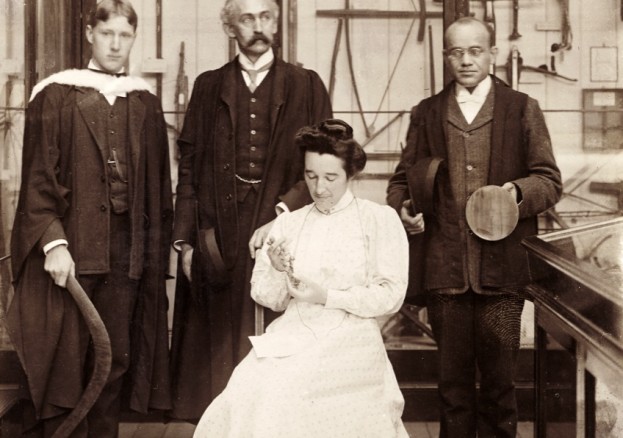
Born in 1873 in All Saints village, Antigua, James Arthur Harley was a poor island boy who dared to dream… and his dreams and ambitions were big.
A gifted scholar, he studied at Howard, Yale, Harvard and Oxford universities. A pioneer Oxford anthropologist, a country curate, ordained a priest in Canterbury Cathedral and a firebrand councillor elected to Leicestershire County Council. His remarkable career was extraordinary because he was black in an age – the early 20th century – that was institutionally racist.
The Adventures of a Black Edwardian Intellectual tells James Arthur Harley’s hitherto unknown story from humble Antiguan childhood through elite education in Jim Crow America to the turbulent England of World War I.
Based on Harley’s letters, sermons, writings, contemporary accounts, and later oral testimony. The Adventures of a Black Edwardian Intellectual is an account of an individual’s trajectory through seven decades of dramatic social change. Navigating the complex intertwining of education, religion, politics and race, his life converged with pivotal periods and events in history: the birth of the American New Negro in the 1900s, black scholars at Ivy League institutions, the heyday of Washington’s black elite and the early civil rights movement, Edwardian English society, and the Great War.
Roberts’ biography reveals a man of religious conviction who won admirers for his work as a vicar and local councillor. But Harley was also complex and abrasive, making enemies and courting controversy and scandal. Most intriguingly, he hinted at illicit aristocratic ancestry dating back to Antigua’s slave-owning past. His life, uncovered here for the first time, is full of contradictions and surprises, but above all illustrates the power and resilience of the human spirit.
Topics suggestions for discussion
- Colourism was prevalent at the turn of the 20th century. What is it, and does it still exist today?
- Is there a rivalry between African Americans and West Indians? If so, why and does the rival still exist?
- Before Rosa Parks, there was Mrs Mary Church Terrell – Discover the contribution of Washington’s black female intellectual elites to the US Civil Rights Movement c1900.
- What are the parallels between Josephine Lawson (James Harley’s wife,1909) and the women of the Windrush Generation (the 1950s) experiences in England?
- How did Harley’s effort contribute to the Great War effort?
- Could contemporary politicians learn any lessons from Harley’s political style and methods?
Location: Hilltop Community Centre 14 Crest Road High Wycombe HP11 1UA
Date and time: Sun, 21 May 2023 17:00 – 18:30 BST
Reserve a spot here
About the author
Pamela Roberts is an award-winning creative producer and historian. The author of Black Oxford: The Untold Stories of Oxford University’s Black Scholars. Her work as Founder and Director of Black Oxford Untold Stories has raised the profile of many black scholars from the turn of the twentieth century. (website: www;blackoxford.net) She is a Fellow of the Royal Society of the Arts, a Fellow of the Royal Historical Society and an Eccles Centre Visiting Fellow at the British Library.
